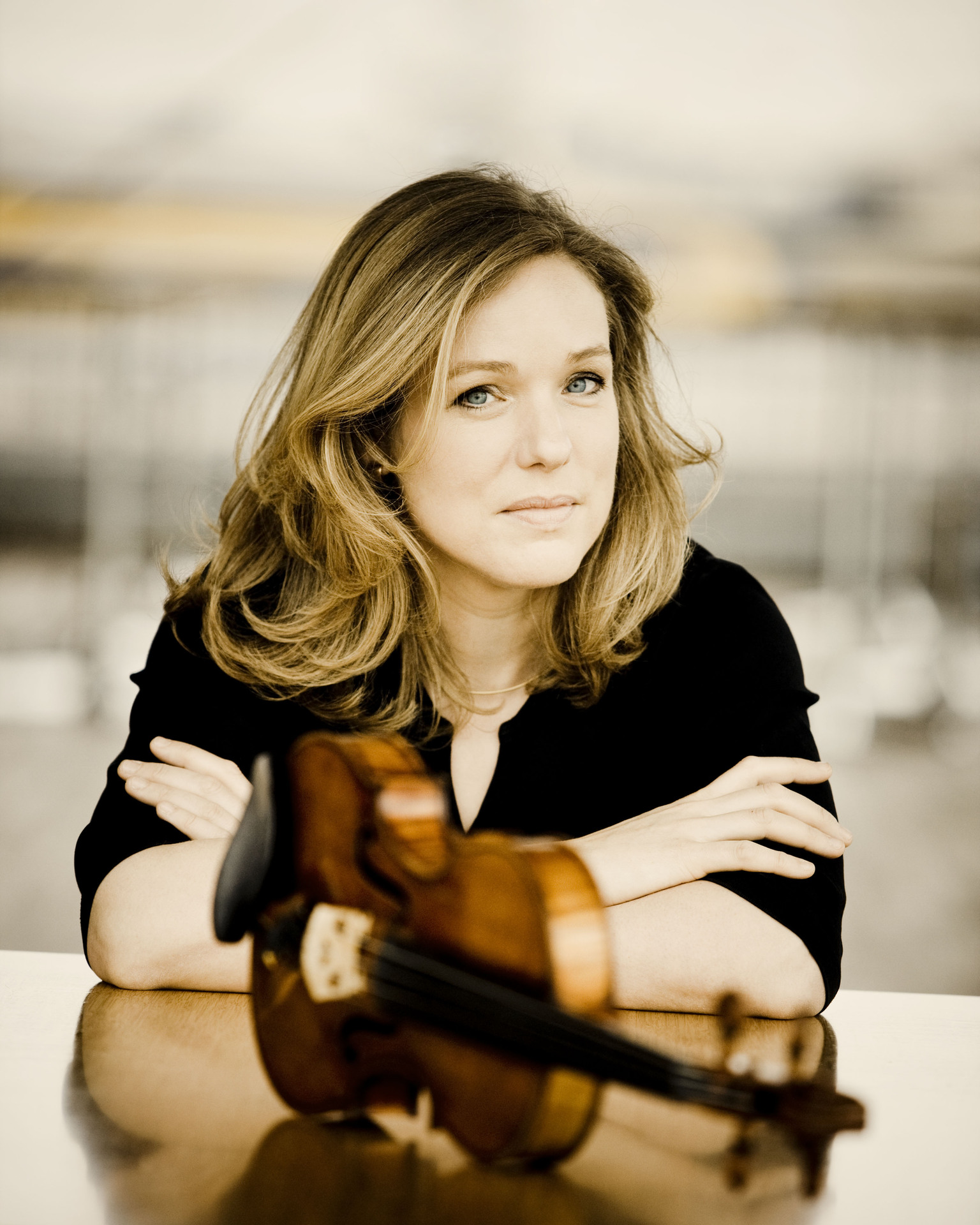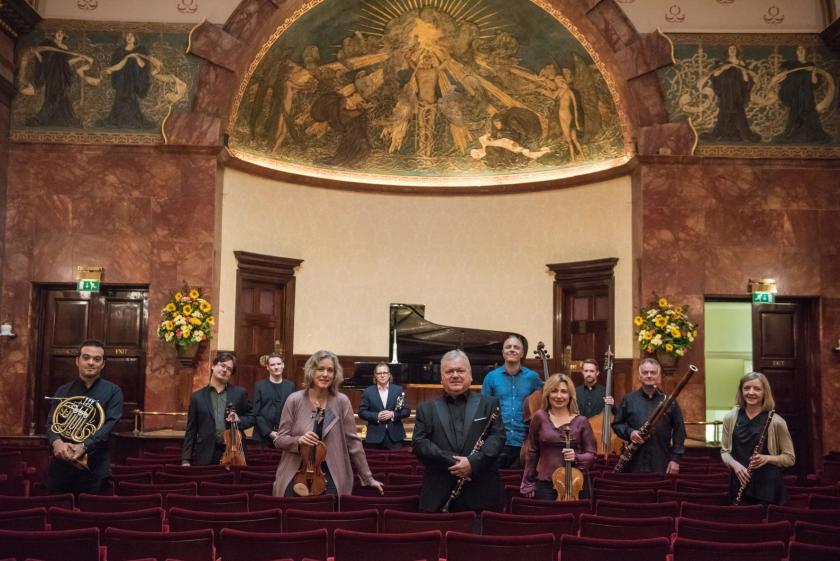Wigmore Soloists is such a good idea, and still at an early stage of its development. The group brings together top players to perform the wider chamber music repertoire, normally septets and upwards. The hall also gives the players a place they can call their home, plus a sprinkling of Wigmore branding to help them make their way in the world.
There have been inevitable delays. Firm plans to set up Wigmore Soloists were already fully made and in place in 2019, but the pandemic and resulting backlogs of postponed concerts have meant that the group is, in reality, only just starting to be active and visible. The next stage will, according to those involved, be to start commissioning new works, or co-commissioning them with other halls internationally.
 The artistic directors are both top-flight players, violinist Isabelle van Keulen (pictured right by Marco Borggreve) and clarinettist Michael Collins, who work with the Wigmore Hall to devise programmes and pick the best musicians they can think of for each and every chair. Wigmore director John Gilhooly is also involved, not least to ensure that the Wigmore Soloists’ programmes dovetail effectively with those of the Kaleidoscope Chamber Collective and the Nash Ensemble, other ensembles with a very close association with the hall. The Soloists’ varied programme on Monday was loosely constructed around a theme of music with Bohemian, Moravian and Slovakian connections.
The artistic directors are both top-flight players, violinist Isabelle van Keulen (pictured right by Marco Borggreve) and clarinettist Michael Collins, who work with the Wigmore Hall to devise programmes and pick the best musicians they can think of for each and every chair. Wigmore director John Gilhooly is also involved, not least to ensure that the Wigmore Soloists’ programmes dovetail effectively with those of the Kaleidoscope Chamber Collective and the Nash Ensemble, other ensembles with a very close association with the hall. The Soloists’ varied programme on Monday was loosely constructed around a theme of music with Bohemian, Moravian and Slovakian connections.
That word "soloists" contained in the name of the group has implications and resonances and gives food for thought. The Janáček Concertino from 1926 was a programming choice which felt not just well aligned with the name and the mission of the group, but also entirely right for these players. This was the stand-out performance of Monday night's programme.
The main protagonist in this work, who functions in the role of responsible adult and/or mischief ringleader – or indeed both – is the pianist. Belfast-born Michael McHale, who is Michael Collins's regular duo partner, was able to combine passion and impeccability in this demanding role. For the other instrumentalists, Janacek’s work is all about being care-free, with a "will-they-ever-learn?" impetuousness. This is a side of human nature that Janáček perhaps expresses as well as any composer has ever done. A quote from one big fan of his music, the Japanese writer Murakami, comes to mind: he wrote in Kafka on the Shore, "When you come out of the storm you won't be the same person who walked in. That's what this storm's all about.”
Each of the other soloists in turn threw him- or herself into his or her own individual storm. First was the turn of the remarkable French horn of Alberto Menéndez Escribano: the Spaniard has a glorious bloom on his sound anyway, but in the Wigmore Hall’s miraculous acoustic it was something to be truly savoured and remembered. We then heard some unassailable Eb clarinet playing from Michael Collins. By the end of the work, it was quite right that McHale should be first to be praised. The other players not only clapped him enthusiastically so he could take the first bow, they also sent him out alone onto the Wigmore stage for another well-deserved round of applause.
A smart choice was to bring in former LSO principal trumpet Philip Cobb. He was a significant presence in two of the other works: the opener, Hummel's Military Septet from 1829, with lots of jolly affable C major (and, frankly, not much else), and later in Martinů’s La Revue de Cuisine. The defining characteristic of Cobb’s contribution was his impeccable sense of balance in the group sound, keeping the trumpet at a volume level to ensure that every other instrumentalist on stage could be and remain an equal protagonist.
The final work was the second of Dvořák’s piano quintets, in A major. The "soloists" concept maybe comes into question in a work like this. The American violinist Arnold Steinhardt once suggested that in a string quartet, each member needed to “give up a little bit of who they were in order to meet in the middle.” I had the feeling, particularly in the second, Dumka movement, that the four extraordinarily fine string players could have done more to bring out the imitative writing, the passing back and forth of melodic material. But it was not to be that kind of performance. Here. the continuously joyous flow of what is sometimes called Dvořák’s "melodic generosity" proved irresistible. Not only were the players clearly carried along by the sheer verve of the piece, a substantial section of the audience was moved to rise to its feet at the moment the music stopped, to greet the end of a thrilling performance.















Add comment